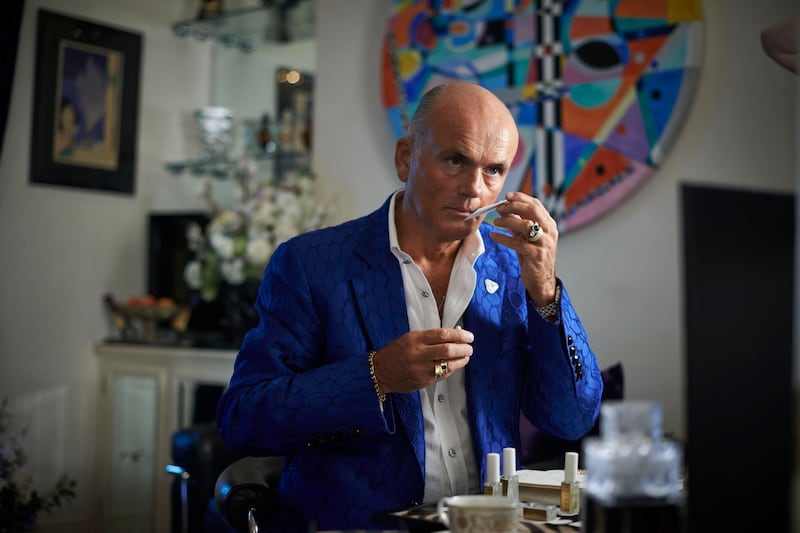Of all the senses, smell casts a unique hold. A scent has the ability to transport you to a distant place, bring you back to a cherished moment or conjure the familiar embrace of a loved one. For many, choosing a fragrance runs much deeper than shopping for other beauty products; it’s an incredibly personal experience.
But for something so individual, the market has become heavily mass-produced. Celebrity endorsements, overzealous marketing and influencer backing all scream at us about the next must-have scent, and en masse, we follow suit.
The tide is beginning to turn, though, and people are starting to gravitate towards traditional perfumery. Dubai saw an influx of luxury, boutique perfume houses arrive in 2018, and while each is unique in spirit, there is one common theme that binds them – the drive to change how we think about fragrance.
"Lovers of perfume want to feel like they have discovered something just for them – a scent that tells a story on their skin, and nobody else's," says Roja Dove, who has been dubbed the "professor of perfume".
It is all about, he says, “personalisation – about having a scent that conveys the wearer’s individuality, marking them out from the crowd and sublimating their need to have every element of their life their way”.
Roja Parfums, located on the second floor of Fashion Avenue at The Dubai Mall, formulates between four and 12 one-of-a-kind perfumes a year, and conducts courses to train and guide emerging perfumers. It also creates more standard, but no less special, scents under the Roja Dove label he founded in 2011. “Real perfumers are creating fine-quality fragrances that appeal to a generation brought up on a diet of olfactory banality and instant gratification, and who begin to realise that what they thought was refined and luxurious is, in fact, mass-market and crass,” Dove says. “These consumers are starting to realise that there are fragrances that convey their individuality, marking them out from the crowd, which once they so wanted to be part of.”
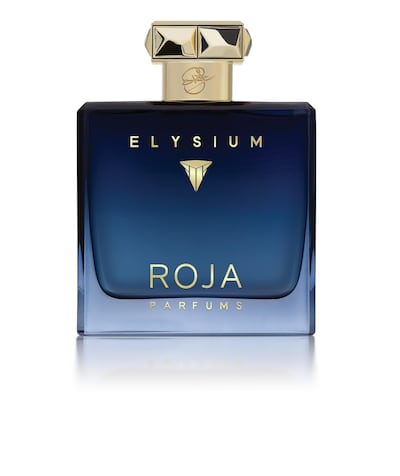
In a world where anybody can become an expert at the click of a button, Dove tells me, consumers eyes are slowly learning about the complex methodologies of perfumery. It allows for people to identify the notes that resonate with them, giving them the confidence to begin building a scent that is truly individual to them. “The future of fragrance lies in legitimacy and authenticity,” he continues. “Consumers are wanting to feel as if they have discovered something for themselves – something that is ‘theirs’. Thanks to the internet, consumers are able to seek out their own olfactive identity, educating themselves on what ingredients they like, what houses they have an affinity with, and where these hidden gems are available. This desire for individuality has caused a resurgence into ‘real’ perfumery, where scents are created by perfumers who are guided by their love for fragrance – rather than a celebrity face or seasonal trend.”
This notion is shared by emerging maison de parfum The Harmonist, which has just became available at Harvey Nichols in Mall of the Emirates. But at The Harmonist, it’s the scent that chooses the wearer. The brand was founded by Lola Tillyaeva – who happens to be the daughter of the former president of Uzbekistan, Islam Karimov. The eastern philosophy of feng shui is at the core of The Harmonist’s fragrance collection. Tillyaeva collaborated with renowned French parfumeur Guillaume Flavigny, and leading feng shui expert Priya Sher, who counts Tony Robbins, Deepak Chopra and Paulo Coelho among her clients. The result is 10 rare scents based on the two energies – yin and yang.
Each of these elements, The Harmonist says, is aligned with one of five life ambitions: prosperity, relationships, serenity, seduction, creativity and prestige. The perfumery will help customers find their dominant element, based on their date, time and place of birth – and from there, one of the scents will choose them.
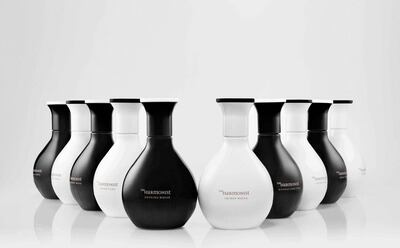
“Through The Harmonist, our aim is for people to feel empowered, by creating their own unique world, wearing a fragrance that best harmonises their personality type and balances inner energies,” Tillyaeva says. “Each of these fragrances corresponds to a powerful energy relating to the individual’s personal element, depending on their current quest.”
Another key mission for The Harmonist is making sure its scents are natural and environmentally friendly. Natural ingredients are at the forefront, as they are with Brazilian perfumery O Boticario, which opened its first Amphora concept store outside of Brazil in Dubai’s City Centre Mirdif in September.
O Boticario has become Brazil’s largest perfume player, thanks to its commitment to sourcing natural ingredients, shunning animal testing, and investing a percentage of its profits back into protecting the rain forest. The stores are also environmentally friendly, and offer interactive shopping experiences for customers.
"Our main focus has always been to create new experiences for the people," says vice president Andre Farber. "Nowadays consumers are very demanding and very discerning when choosing a brand or product to buy. When they buy our products, they know exactly what our brand stands for. We want our stores to reveal the soul of O Boticario, thus our team is continuously researching different combinations that make our products stand out in the market."
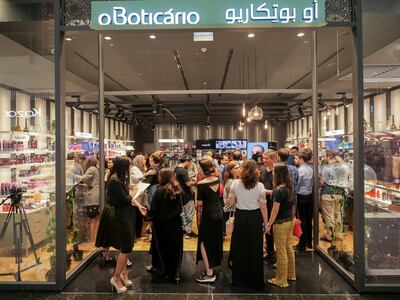
For this new wave of boutique perfumes, the biggest focus, however, seems to be the push towards redefining gender stereotypes. For too long, scents have been categorised as masculine or feminine, rose or wood, and Commodity is one of the brands tearing up the rule book.
“It’s not that Commodity decided to create unisex fragrances. Rather, over the past 30-plus years, the beauty industry decided to train consumers’ minds through mass advertising and selling tactics that men or women were supposed to wear certain types of fragrances,” explains Commodity founder Ash Huzenlaub. “At Commodity, we have a wide range of fragrances developed by 12 master perfumers with very diverse backgrounds. It is your decision as to which of our creations is right for you, regardless of your gender.”
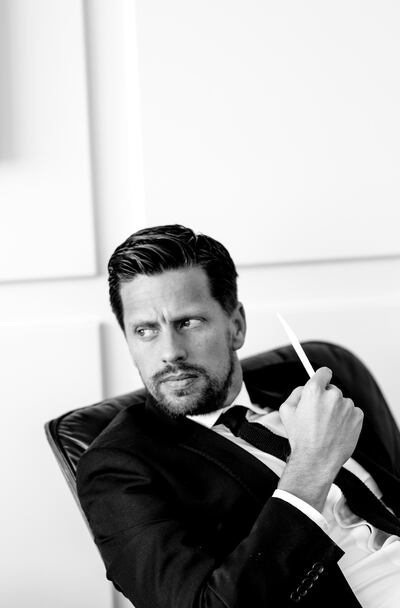
Commodity started life online, and has just launched in Sephora stores in the Middle East. The fragrances are split into three collections: white, black and platinum – neutral, in every sense of the word. "Commodity seeks to challenge traditional industry structures, stripping back pretence in how we present our creations through straightforward packaging, thereby demystifying luxury, offering instead both simplicity and transparency," Huzenlaub adds. "Our fragrances speak of a fantastic androgyny. We are starting to see a generation that is self-assured enough that they will wear any fragrance that they feel smells right. They don't need to be told it is for women or men. The scents trigger an emotion within them – and that is all that matters."
Of course, unisex is what has always been the norm for traditional Middle Eastern perfumeries, and this has certainly inspired the push for boutique houses to follow suit.
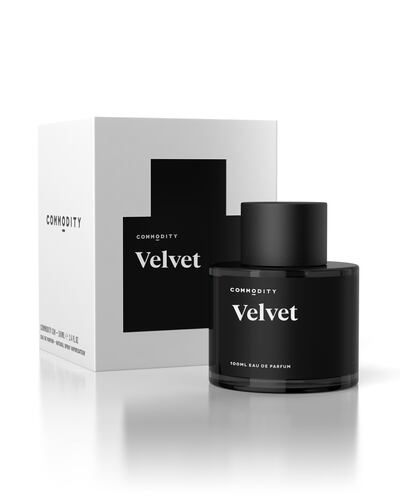
Roja Dove has taken huge inspiration from this part of the world in creating his boutique fragrances, and ensuring that they are unisex has always been high on his agenda. “In over 30 years of training, I have never come across a culture which held perfume so close to its heart – the ritual of scenting was ingrained as part of everyday life,” he says. “This cast a spell on me; I fell in love with the perfumes of the Middle East and the people who wore them.
“A rose on a woman smells like a feminine rose, whereas a rose on a man is a masculine rose,” he says. “Stereotyping a particular ingredient to a particular gender is so Victorian. If you find a scent you love, that makes you walk a little taller – wear it.”
____________________
Read more:
Huda and Mona Kattan to launch their own perfume line called Kayali
Scrimp or splurge? How UAE residents like to spend their money
Merchant of Venice brings perfumes in Murano glass bottles to Dubai
____________________
